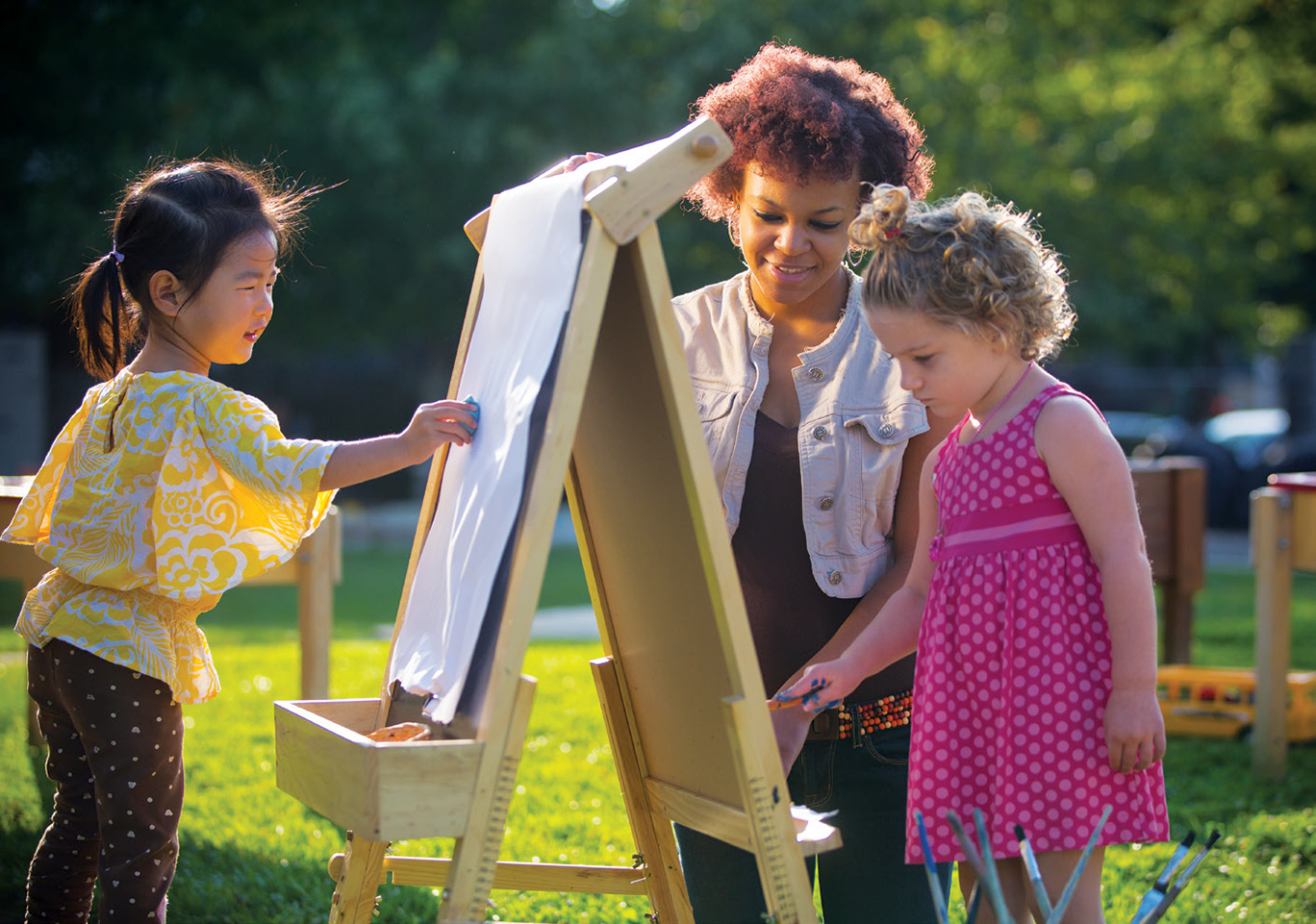Life Lessons
September 11, 2016

USA Today has ranked Virginia Tech as the nation’s second best for pursuing a major in human development and family studies.
The university’s human development major focuses on child and adolescent development, adult development and aging, disabilities studies, human services, and family studies.
“Our program emphasizes the knowledge and skills that make a difference in people’s lives,” said Anisa Zvonkovic, head of the Department of Human Development in the College of Liberal Arts and Human Sciences. “We apply science to daily living, to help people thrive. Rather than focusing on limitations, we work with people to help them achieve the best lives possible.”
The program places a strong emphasis on experiential learning. Many human development students practice their skills and conduct research in four Virginia Tech centers that serve as living laboratories: the Child Development Center for Learning and Research, Adult Day Services, and the Family Therapy Center, all in Blacksburg, and the Center for Family Services, in Falls Church, Virginia.
The Child Development Center for Learning and Research, which provides a model preschool program, consistently receives the highest ranking from both the Virginia Star Quality system and the National Association for the Education of Young Children.
Adult Day Services, which has provided care services for older adults in the New River Valley since 1992, also serves as a teaching site for students learning about older adults and a research site for faculty and students interested in the aging field.
The Child Development Center for Learning and Research and Adult Day Services have together won national awards for their intergenerational program.
The Family Therapy Center, the longest continuously operating center of its kind in the country, each year conducts more than 1,000 hours of therapy with individuals, couples, and families from all socioeconomic and ethnic groups and from as far away as North Carolina and West Virginia.
The Center for Family Services, located in the Northern Virginia Center, recently became the site of a $7.2 million grant for a five-year project to promote healthy relationships and economic stability among low-income couples.
All this translates to real-world learning opportunities for Virginia Tech students.
“Hands-on learning helps students figure out what careers will make them happy,” said Zvonkovic. “Our students also gain valuable experiences through internships and field studies at schools, community services agencies, nonprofit organizations, and research centers.”
Zvonkovic noted that an undergraduate degree in human development prepares students for a range of jobs, with skills that are valuable in any field. An estimated one-third of human development majors at Virginia Tech go on to careers in education. Still others pursue careers in such fields as physical and occupational therapy, law, human services, nonprofit administration, international work, health care, business, and government.
Virginia Tech also offers doctoral degrees in human development, with emphasis on such areas as adult development and aging, child and adolescent development, family studies, and marriage and family therapy. A master’s degree in marriage and family therapy is offered in Falls Church.
“Our human development program embodies the Virginia Tech ideal of learning,” said Elizabeth Spiller, dean of the College of Liberal Arts and Human Sciences. “It combines the disciplinary depth of a major with interdisciplinary understanding, experiential learning, and a purpose-driven engagement. We’re proud to see this national recognition of the quality and value of our human development major and program.”
Virginia Tech’s human development program has long held a national reputation for excellence. Last year, USA Today and its ranking partner, College Factual, named the program first in the country.
“Human development makes a huge difference across the entire human lifespan,” said Zvonkovic. “It emphasizes the value of nurturing another generation, whether it’s an earlier generation or a younger one. It also focuses on discovering the best strategies for helping people in the context of their age, abilities, and living environments. Our students demonstrate Ut Prosim (That I May Serve) through their learning and research, and they go on to make Virginia Tech proud.”





